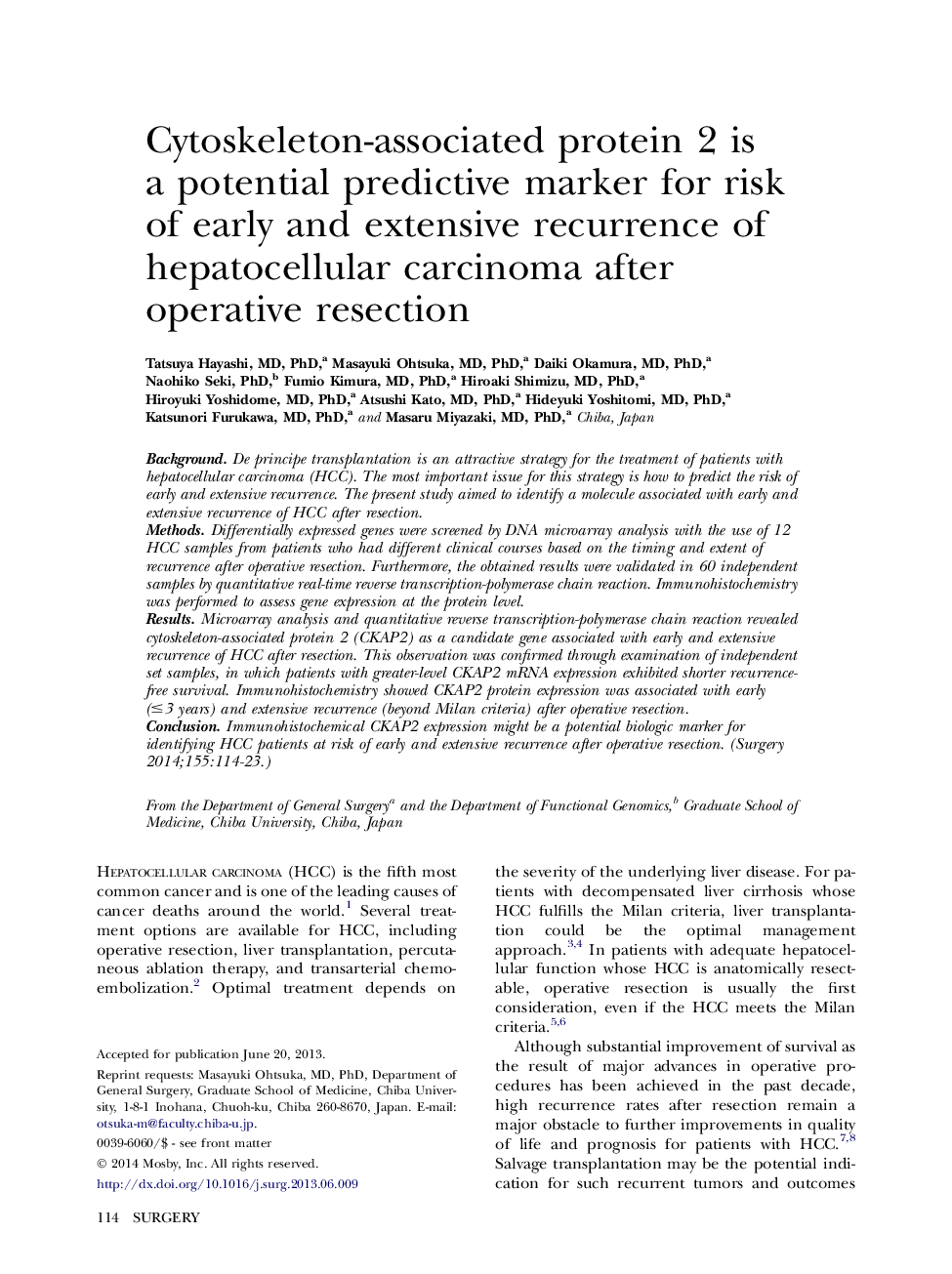| Article ID | Journal | Published Year | Pages | File Type |
|---|---|---|---|---|
| 4306865 | Surgery | 2014 | 10 Pages |
BackgroundDe principe transplantation is an attractive strategy for the treatment of patients with hepatocellular carcinoma (HCC). The most important issue for this strategy is how to predict the risk of early and extensive recurrence. The present study aimed to identify a molecule associated with early and extensive recurrence of HCC after resection.MethodsDifferentially expressed genes were screened by DNA microarray analysis with the use of 12 HCC samples from patients who had different clinical courses based on the timing and extent of recurrence after operative resection. Furthermore, the obtained results were validated in 60 independent samples by quantitative real-time reverse transcription-polymerase chain reaction. Immunohistochemistry was performed to assess gene expression at the protein level.ResultsMicroarray analysis and quantitative reverse transcription-polymerase chain reaction revealed cytoskeleton-associated protein 2 (CKAP2) as a candidate gene associated with early and extensive recurrence of HCC after resection. This observation was confirmed through examination of independent set samples, in which patients with greater-level CKAP2 mRNA expression exhibited shorter recurrence-free survival. Immunohistochemistry showed CKAP2 protein expression was associated with early (≤3 years) and extensive recurrence (beyond Milan criteria) after operative resection.ConclusionImmunohistochemical CKAP2 expression might be a potential biologic marker for identifying HCC patients at risk of early and extensive recurrence after operative resection.
